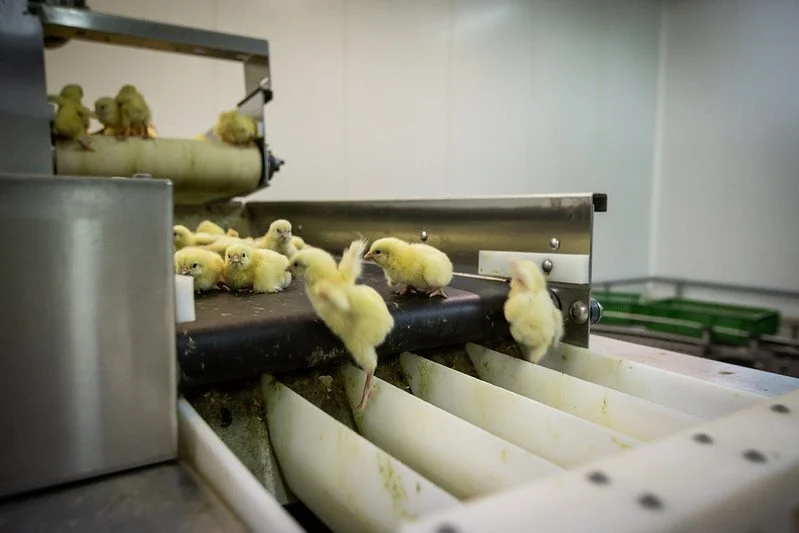Egg-free Living: Navigating Veganuary with Sarah
Meet Sarah, a passionate food enthusiast diving into Veganuary—a vibrant time filled with culinary exploration and joyous laughter. In her small kitchen, friends gather to experiment with new plant-based recipes and share stories. However, as the conversation shifts towards the food system, a question that nobody can quite crack lingers—what's wrong with eggs?
As the night winds down and Sarah bids farewell to her friends, she delves into a quest for answers. It doesn't take long for her to confront the harsh realities of the egg industry. Huddled over her tablet at the kitchen table, she sifts through gut-wrenching images—layers of hens crammed into battery cages and 'cage-free' barns, their movements restricted. These creatures are sentient, Sarah discovers, possessing intelligence akin to her cherished cat 'Sergeant Fluff.' Yet, they endure suffering on a scale most wouldn't tolerate for dogs or cats. A disturbing insight hits Sarah just when she thinks she's seen enough: for every female chick fated for a life of abuse, mutilation, and malnourishment, there's a male chick denied a chance at life.
As Sarah lies in bed, reflecting on the delightful dinner with friends and the eye-opening facts she's just absorbed, she wonders—aren't eggs from small homesteads and backyard setups harmless? Surely, those hens, living outdoors with grass under their feet, are well cared for. The next morning, fueled by curiosity, she scours Insta for pictures of idyllic hen farms nearby. Amidst the many backyard chicken enthusiasts on social media who seem to have cracked the egg dilemma, she stumbles upon a woman dedicated to rescuing chickens from dire situations.
This chicken-saving advocate, once an organic and pasture-raised egg supporter, transitioned to an egg-free lifestyle after witnessing the relentless suffering inflicted by breeding. Sarah's feed becomes a revelation—hens, much like companion animals, have been artificially selected for traits deemed 'desirable' by humans. The comparison strikes a chord as she learns that, just as bulldogs face birthing challenges due to human-driven transformations, hens are ruthlessly bred to lay over 300 eggs annually—a stark increase from their ancestors' 10-15, far beyond their natural capacity. The notion of chickens in backyards and homesteads not being exempt from suffering dawns on her.
For Sarah, abandoning eggs feels like the only ethical choice, yet she hesitates. Childhood breakfast memories, filled with the comforting aroma of scrambled eggs and entwined with the fragrance of fresh coffee, flood her thoughts. Eggs with buttered toast were more than a meal; they were a cherished ritual, a piece of personal history. Baking, a beloved tradition, with her grandmother, involved the joyous cracking of eggs. This decision proves harder than she anticipated.
Lost in her nostalgia, Sarah receives a call from her best friend, a Veganuary companion. She's over the moon about the egg-like breakfast she tried that morning. Intrigued, the friends decide to explore the supermarket for more alternatives. They discover a world of innovative products, special promotions in place for the month. Sarah is nervous at first, but then she becomes excited when she realizes it's easy to bake without eggs once she understands their importance in recipes.
Back in the office on Monday, Sarah proudly shares her newfound discoveries with colleagues during lunch. One of them remains skeptical, stating that to truly ditch eggs, she must go beyond merely spotting the word 'eggs' on the ingredient list. He shares his brother's experience, who, being allergic, learned the hard way that they hide under various names in different products. The conversation delves into the complexity of identifying egg-based ingredients, including the use of prefixes like ovo- or ova- and tricky terms like Albumin and Apovitellin that read like a secret code. Unfortunately, this is not the only demotivating experience. When Sarah discusses her dietary choices with her parents, she encounters disapproval and additional criticism.
Staying on track can surely become a struggle. The key to sustaining an egg-free and vegan life is to stay motivated and remind oneself of the initial reasons for the journey. Videos and educational content on social media channels can be useful for keeping eggs off the table and passing along knowledge to curious friends.
Ordering at eateries to make sure nutrients and proteins are in order can remain a challenge. We offer our recommendation to enroll in the Vegan Bootcamp, a comprehensive resource that dissects information into easily digestible sections and provides personalized guidance.
As Sarah's story unfolds, it’s not just about what’s on the plate—it’s about challenging norms, making compassionate choices, and creating lasting change. This journey reshapes perspectives, for the animals and for a future that values kindness over convenience. Will you join her in choosing a world where compassion leads the way?
Resources & Further Reading
Further Reading:
The Path To a Vegan World: How to Love All Animals
Speciesism: Why Love Some Animals and Eat Others
Resources:
How to Replace Eggs: Recipes and Resources
Ready to Go Vegan? Vegan Bootcamp









